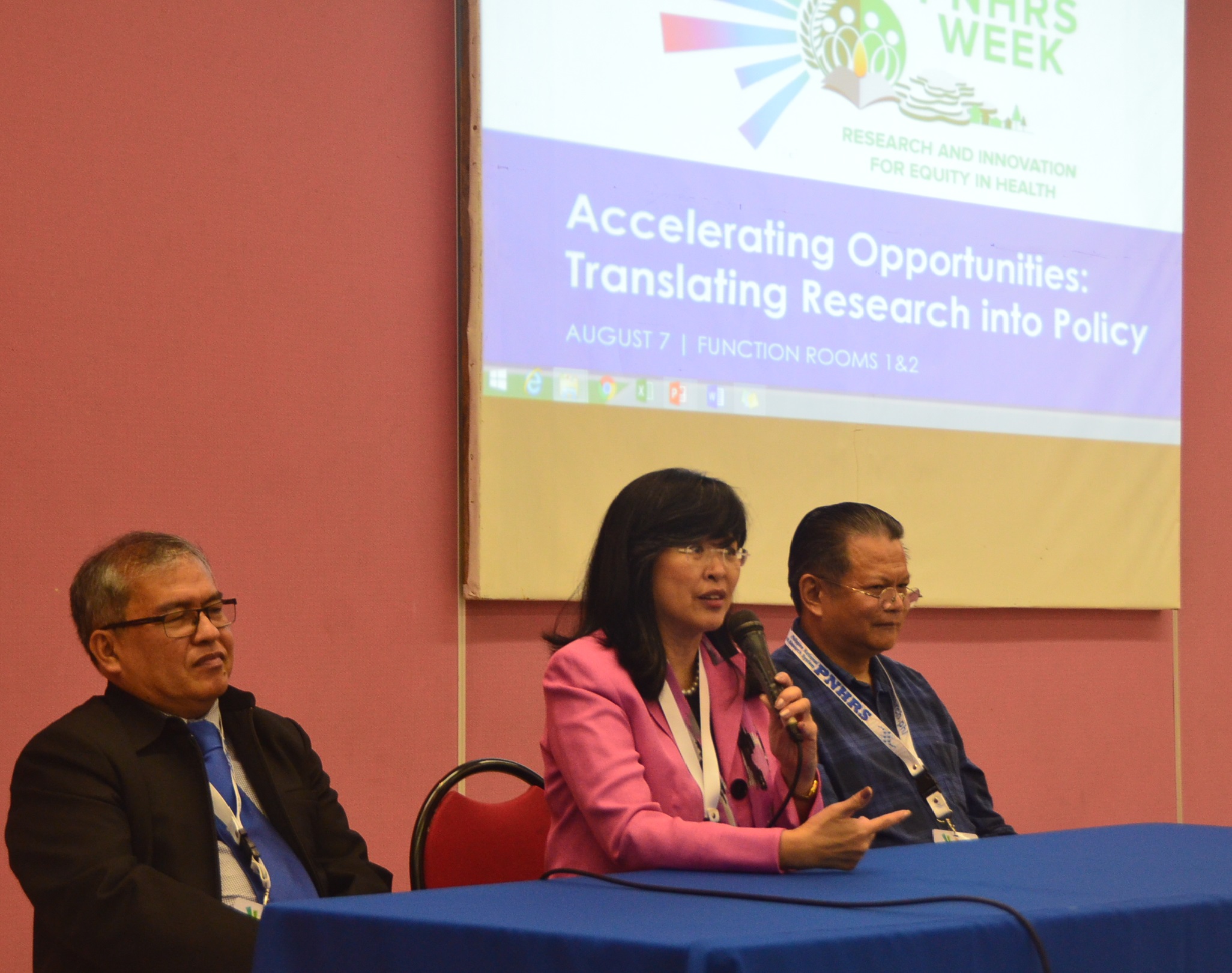
With the goal of increasing awareness of the Research Utilization Committee (RUC) members from the region on barriers and opportunities in translating research into policy and strategies to affect change on current policy environment of the regional consortia members, three health research champions were invited to share their experiences on influencing health policy through research. Attended by 75 RUC members, policy influencers and communication practitioners, the preconference session was held as part of the 12th Philippine National Health Research System (PNHRS) Week in Baguio City on 7 August 2018.
In the morning session, three notable speakers and Alberto G. Romualdez, Jr. Health Research Award (AROHRA) winners namely, Dr. Ronald Matias (St.Luke’s Medical Center), Dr. Carmencita Padilla (UP Manila) and Dr. Mario V. Capanzana (DOST-FNRI) shared their journey of translating their research into policy.
Dr. Ronald Matias, Senior Scientist, St. Luke’s Medical Center, Quezon City, discussed the St. Luke’s Dengue Research Program on dengue surveillance, assessment and emerging technologies. As there are already existing policies by the WHO and DOH, implementation of dengue prevention and control should be accompanied by timely and innovative researches which are integrated into policy. With the goal of reducing the incidence of the disease, Dr. Matias emphasizes that research and development efforts must be converted into public health solutions.
Dr. Carmencita Padilla, Chancellor, University of the Philippines, Manila (UPM) highlighted the history of the National Newborn Screening Program from being a UPM and DOST-funded research project in 1996 to being the Newborn Screening Law (R.A. 9288) in 2004 as it went through the arduous process of policy-making. Dr. Padilla shared some strategies that can influence public policy which included: a) working with a collaborative, multi-disciplinary and persistent study group, b) having a range of effective communication strategies that must reach the public, the professionals and the policymakers, c) generating data and developing it into peer-reviewed publications to be used as basis for policy, d) engaging stakeholders and building public-private partnerships to create a multi-environment for easier adaptation, and e) identifying champions for policy development who will sponsor or lobby the advocacy.
Dr. Mario V. Capanzana, Director, Food and Nutrition Research Institute (DOST-FNRI) talked about undernutrition and its consequences not only at the individual but also at the national level. According to Dr. Capanzana, malnutrition, in its many forms, causes the country to lose around 1.5% of its GDP and also increase health costs. Research conducted by the FNRI has prompted the creation of the policy on Food Fortification as a way to mitigate micronutrient deficiency, a facet of malnutrition. Refinement of food fortification technology and studies on the efficacy of Iron-fortified Rice had been instrumental in technology transfer and commercialization of Iron-Fortified Rice as a Scaling-up strategy to also achieve food security.
In the afternoon session, a workshop was held for the participating members of the Regional Consortia for Health Research and Development. Each region was tasked to present a Research to Policy Plan involving one current or prospective research project using a template derived from the discussions in the morning session
Details
Written by Catherine Joy C. Dimailig
Created: 03 September 2018
